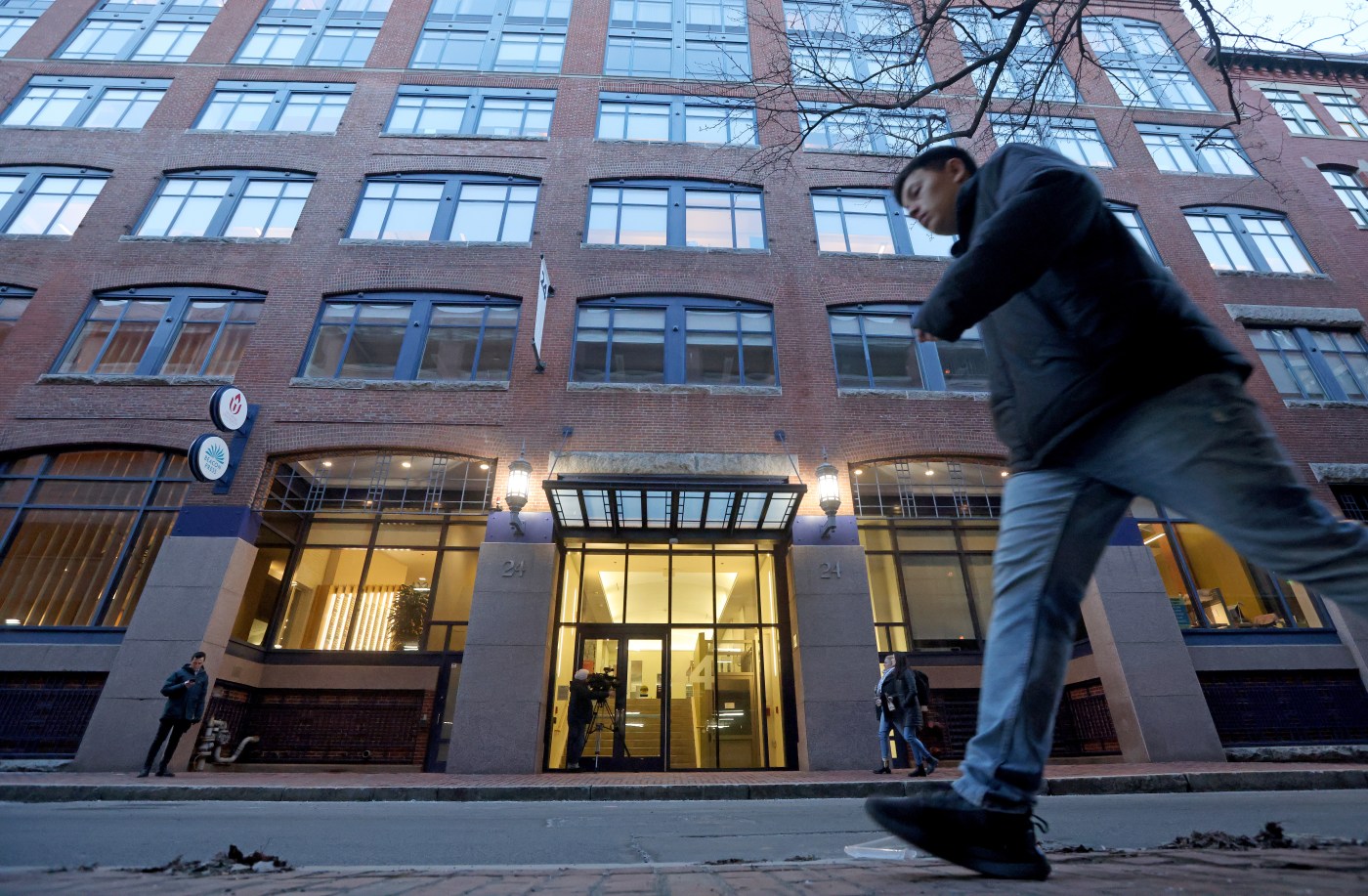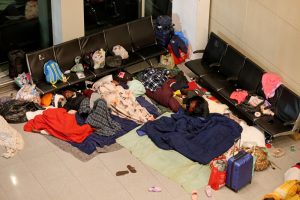
Steady influx of migrant families keep Fort Point shelter end date uncertain
The Healey administration wouldn’t commit to an end date for a new overflow site for migrant families set to open in Boston’s Seaport next week, citing the steady influx of new arrivals who continue to put a strain on the state’s shelter system.
The plan, confirmed by the governor last Monday after weeks of speculation, is for 20-25 migrant and homeless families to stay overnight at an office building in the Fort Point neighborhood, and be transported each weekday morning to two nearby YMCA facilities, where they will shower and be provided with free meals.
On weekends, the families will be taken from the 80-bed overnight facility at 24 Farnsworth St. to other undisclosed community centers, officials from the Healey administration and United Way of Massachusetts Bay, which is working with the state to open safety-net sites via a $5 million grant program, said at a Friday night virtual community meeting.
The families will receive “wrap-around and case management services” for language, employment, housing assistance and community integration off-site from the Black Refugee and Immigrant Coalition, United Way representatives said.
“We think this will be a short-term site,” Lt. Gov. Kim Driscoll said. “Right now we have sort of a 90-day time frame, or through the end of June. It’s a little bit more than 90 days. We do have an opportunity to extend that if necessary.”
Whether the state chooses to seek an extension of the 90-day temporary certificate of inspection issued by the city of Boston, allowing for emergency shelter use to override what the site is currently zoned for per state building code, is largely dependent on the influx of new arrivals that has kept the governor’s emergency declaration in place, Driscoll said.
The state’s emergency assistance shelter program maxed out at 7,500 families last November. Roughly 2,500 people from 761 families are on the waitlist, and that demand grows by roughly 30 to 50 families per day and about 1,000 per month, according to a presentation shared by the administration.
Since Gov. Maura Healey took office last January 2023, the state’s emergency system has “doubled” from the 3,800 families typically seen in past years, the presentation showed.
“As we’re evaluating sites and putting in place other opportunities and obviously monitoring very carefully situations in terms of who’s coming in, what our emergency shelter site needs are, that would really determine whether or not any extension was necessary here,” Driscoll said.
Related Articles
Fort Point shelter to serve migrants resurfacing at Boston’s Logan Airport
Howie Carr: $1B wake-up call over migrant mess
Even Healey expresses desire for shelter reforms amid migrant crunch
On the Rio Grande, 300 miles apart, Biden and Trump try to use immigration to election advantage
Fort Point neighbors blast governor, nonprofit for icing them out of migrant shelter plans
The plan laid out at the night’s meeting recognizes the limitations of the selected office building, which lacks adequate shower and bathroom facilities and operates as a regular workplace during the day, and is aimed at providing minimal disruption to the neighborhood, United Way and state officials said, while trying to relieve the vast amount of concern raised at a prior community meeting.
Families will arrive in a “couple of waves” after cots are delivered next week to the new shelter, occupying about 10,000 square feet of available office space on an empty floor with six bathrooms, representatives from United Way said.
All will be vetted, including for legal immigration status in regards to migrants, many of whom are seeking asylum, and there will be a security presence at all times they’re on site, officials said in response to questions from community members shared in a written chat.
“The purpose of the security is to ensure the safety of the families, as well as the larger neighborhood, the team and the city,” Sarah Bartley, a housing program vice president at United Way, said.
Other concerns centered around traffic congestion from vans traveling on the dead-end street to transport families off-site to the Y and other community centers.
Carey McDonald, executive vice president of the Unitarian Universalist Association, which owns the building and offered up the space rent-free, wasn’t fussed, however, about what he expected to be a “normal amount of traffic” for a commercial location.
Given that community participation on the nearly 300-person call was limited to written questions, it was unclear whether the answers provided adequately allayed the opposition cited at an raucous neighborhood meeting held a day after the new shelter location was confirmed by the governor.
The Fort Point Neighborhood Association, which hosted that earlier meeting, said in a statement after Friday’s session that questions it submitted three weeks ago had been answered satisfactorily.
“We are optimistic the best possible outcome can be achieved while minimizing impact to the neighborhood,” the statement said.
Still, City Councilor Ed Flynn, who represents the South Boston and Seaport area, said he continues to oppose the plan, citing the lack of adequate shower and bathroom facilities and logistical challenges with getting families through traffic to the Chinatown and Huntington Avenue YMCAs.
“I’m against this proposal,” Flynn said, “and disappointed that United Way hasn’t been upfront with the residents.”


